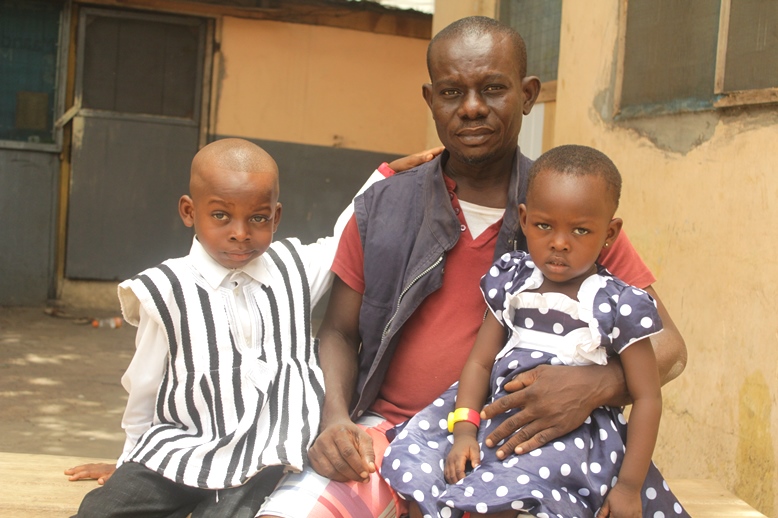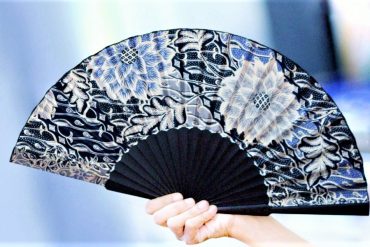The problem is that I just can’t be still. I’m like the lathe that cannot stop spinning to give shape to the wood. I’ve lived amid varnish and sawdust for more than fifty years. My handicrafts and I have survived earthquakes and wars, and I’m still here, ready for what the future brings.
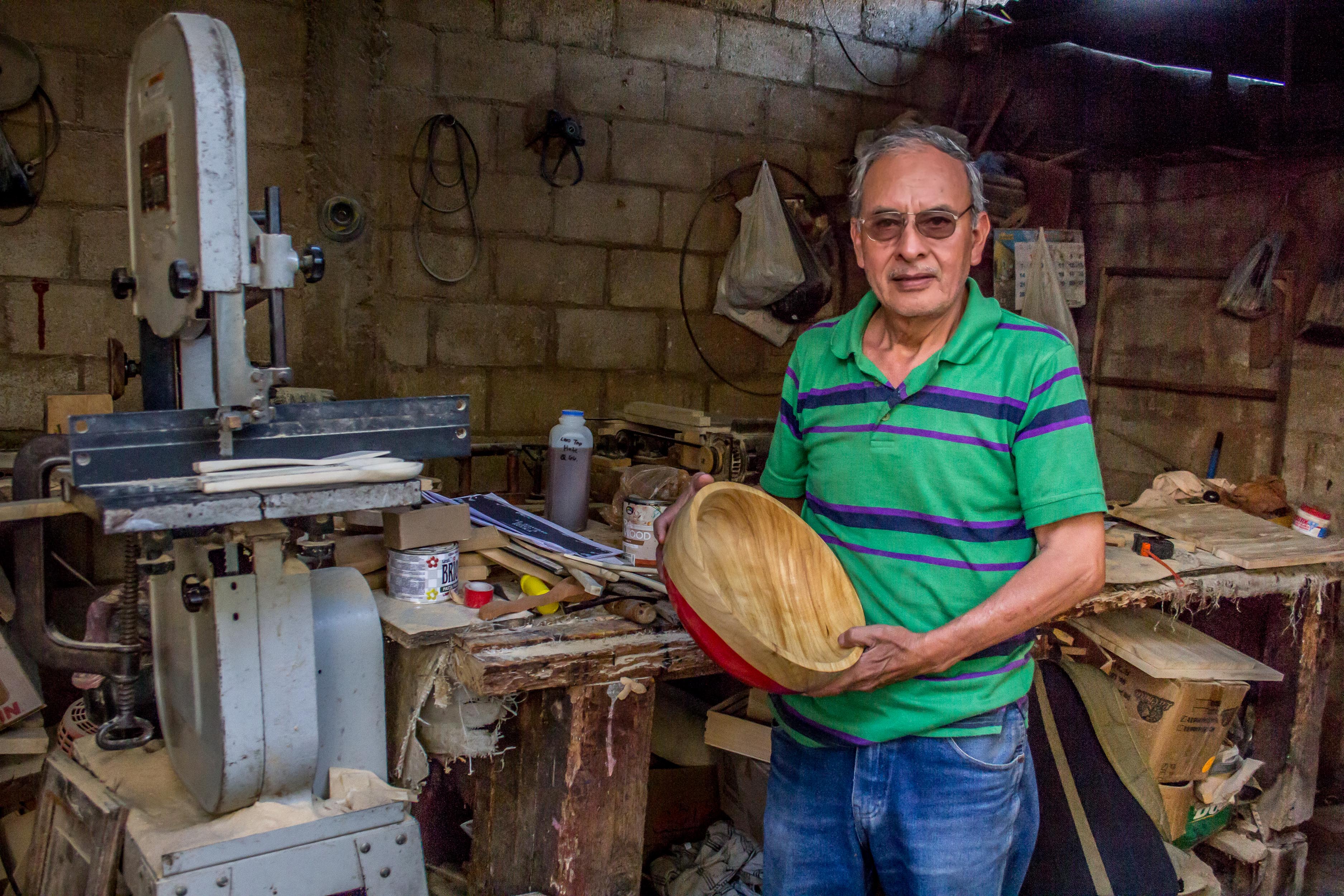
My brother-in-law taught me the art of carving wood in the shape of fruit. I had lost my job and was already a father. I couldn’t be without work and just stand around waiting for a job. Fortunately, I learned quickly and our workshop was growing until February of 1976 when an earthquake woke us all in the early hours of the morning.
Almost all of Guatemala was left in ruins and my sales took a nosedive. My brother-in-law retired and I was left by myself to carve the brightly-colored apples, bananas and mangos. It was necessity and perhaps destiny that led me to cross the borders of my country.
An artisan friend came to my house with boxes of wooden fruits he hadn’t been able to sell and asked me to help him. So I got the idea of trying my luck in El Salvador and — believe it or not — at the first place I stopped, I made a sale!
I began traveling to El Salvador every two weeks while my family grew. Everything was going well when war broke out. Nothing happened to me but travelers told how people disappeared and bombs exploded along the highways.
These wooden fruits were all I had to support my family so I didn’t hesitate to try my luck in a country I knew nothing about. One morning I packed all my carvings in boxes, got on a bus and went to Honduras, although I knew no one there. But I found clients by selling door to door and I persisted, even though I had to unpack everything then pack it up again when I had no luck.
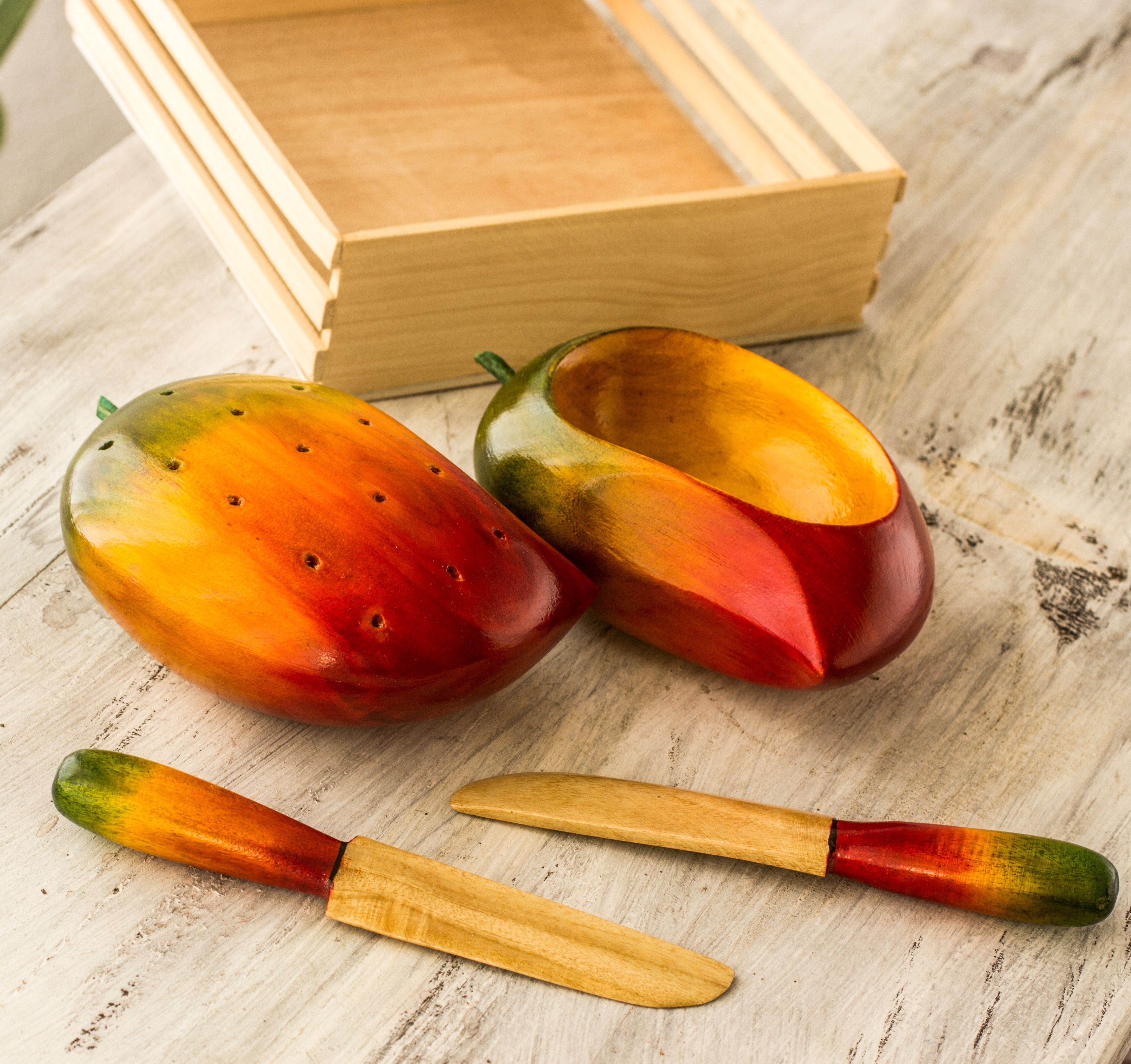
Click Image For More Details
However, although I was making money, I was missing out on something bigger — time with my family. Traveling kept me away from them for days on end while my children were growing up many miles away. As time went by, I began to fear for my own security. I always traveled with a knife in my pocket, ready to cut a hole in the seat cover and hide my money there if a thief were to board the bus.
I had already lost out on many years, many important moments with my family and I decided to stop traveling for a while. My kids saw me working morning, afternoon and night, and they began to show an interest in learning this art. I can say that those wooden pears and plums and those first plates brought us together as a family.
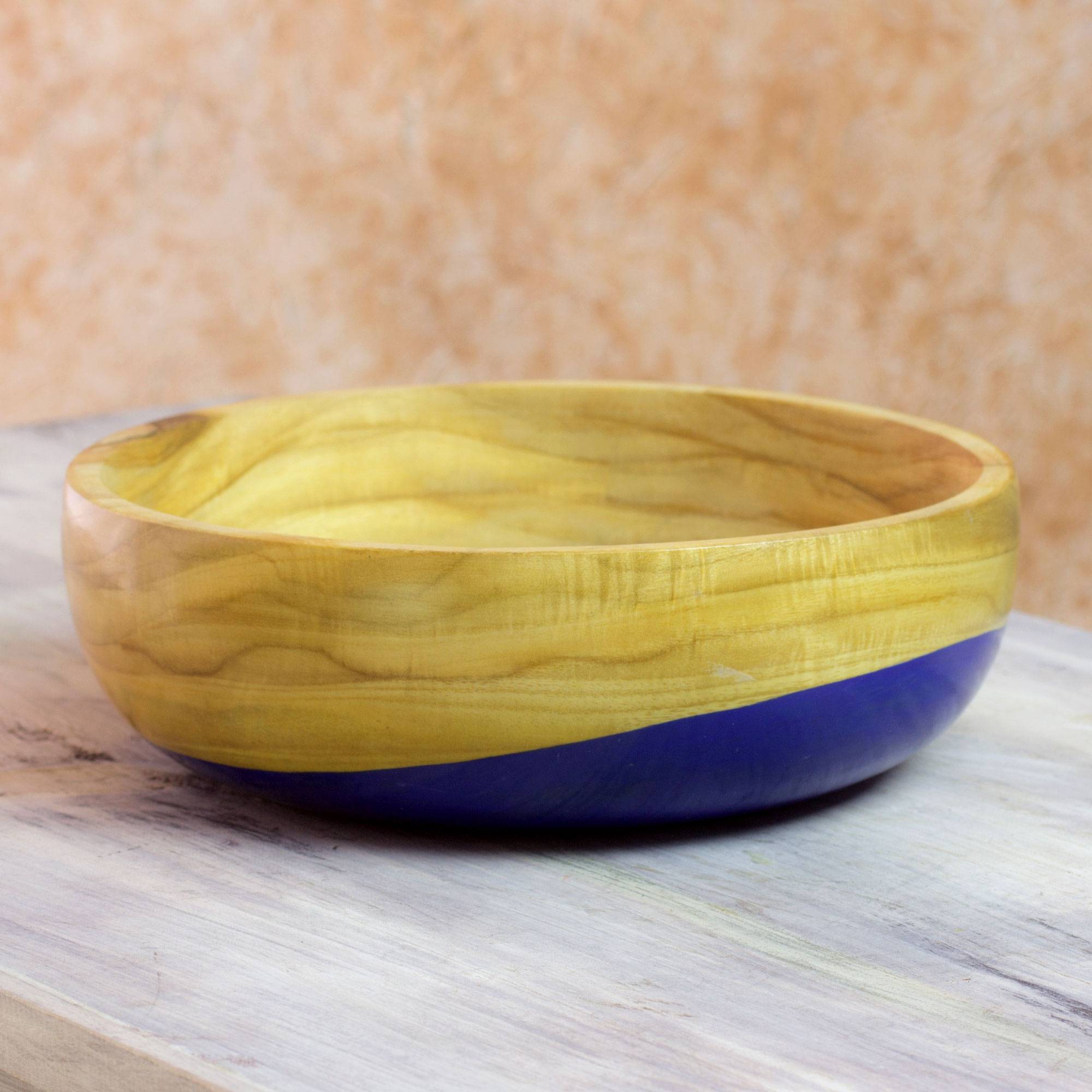
Click Image For More Details
These carvings also put food on the table and sent our kids to school. I carved and one of them sanded the figurines. Another added the bright colors but, one day, I lost him. Thieves attacked to steal his cell phone and beat him so badly, he died. The guilty person is in prison and is awaiting trial. Still, sometimes I stop the lathe and saws and I feel as though my son is still here; he is setting the wooden fruits to dry. In my mind, they still carry the smell of varnish.
Today, one of my grandchildren takes care of the details we carve in our wooden spatulas and other kitchen utensils. I no longer leave Guatemala. NOVICA has given me the opportunity of having only one big client that takes my designs to places I might never have reached. They have also taken my work to a different level. I simply can’t be still and, if someone shows me a photo of a piece of furniture, I’m already thinking of how I can craft it from wood. I’ve tried but I don’t know how to live any other way. I don’t think I’ll ever get the smell of sawdust off my hands.
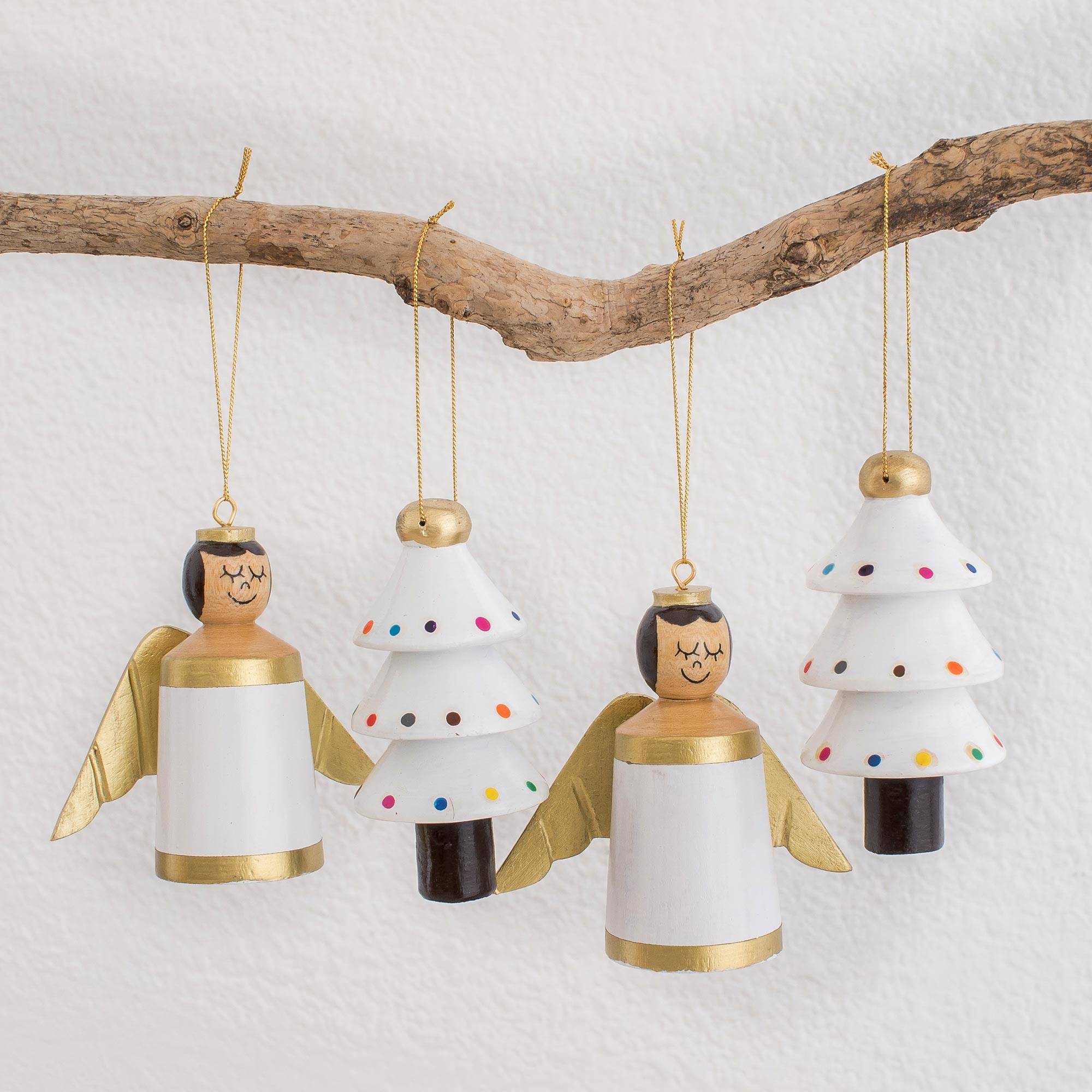
Click Image For More Details
The workshop belongs to me and to my family, but I could never close the doors to the other artisans in my town. Friends who come over to lend me a tool, or ask to borrow a power tool to carve their own fruit sculptures. It may seem silly to help my competition but, with all the doors that have been opened for me, why wouldn’t I open doors for others?
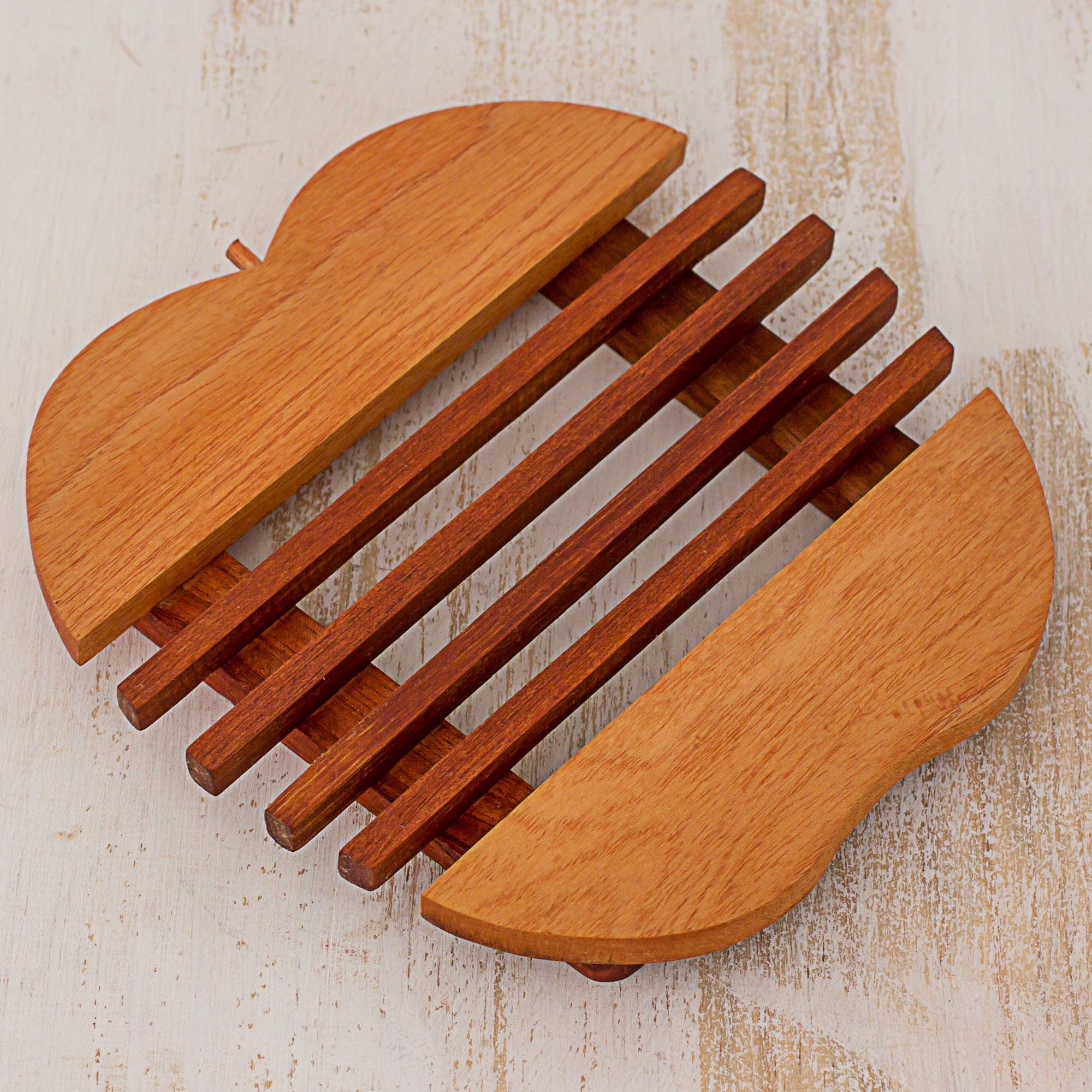
Click Image For More Details
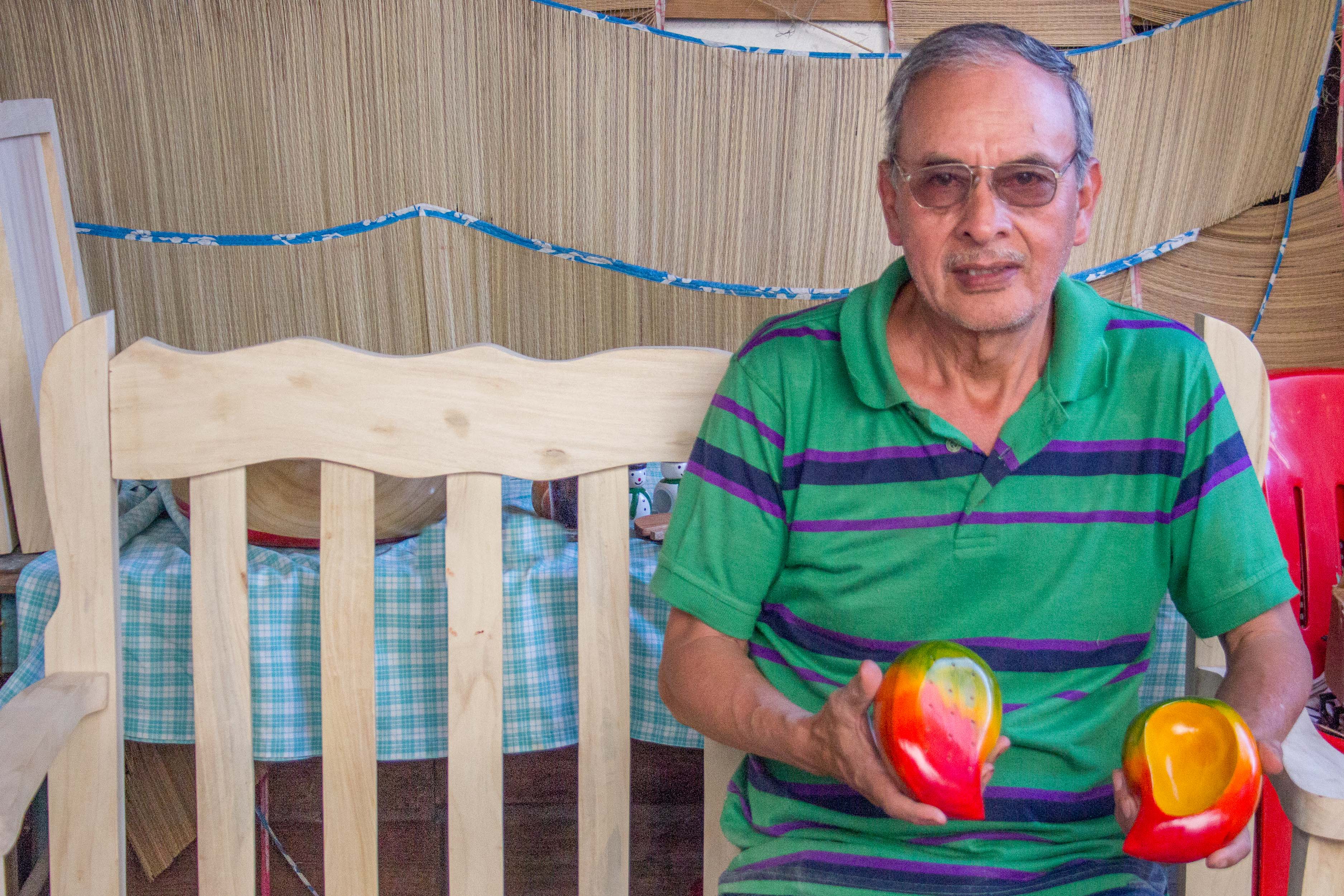
Interview of Víctor Hugo López by Gabriel Woltke, 2018.
NOVICA is proud to present Victor’s entire collection here.



